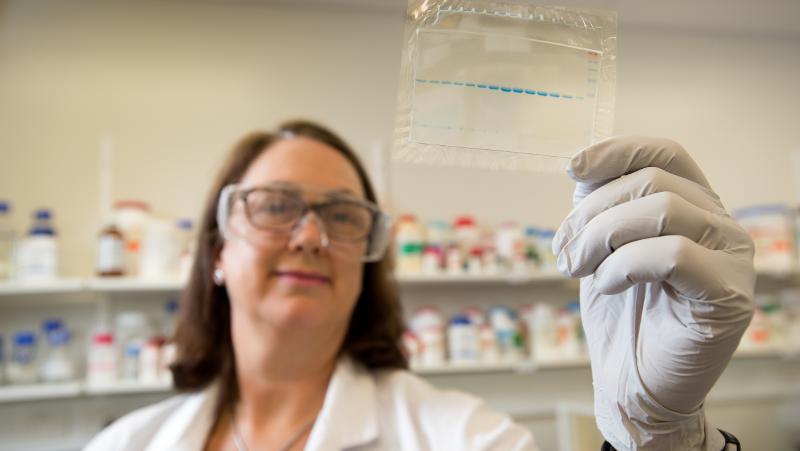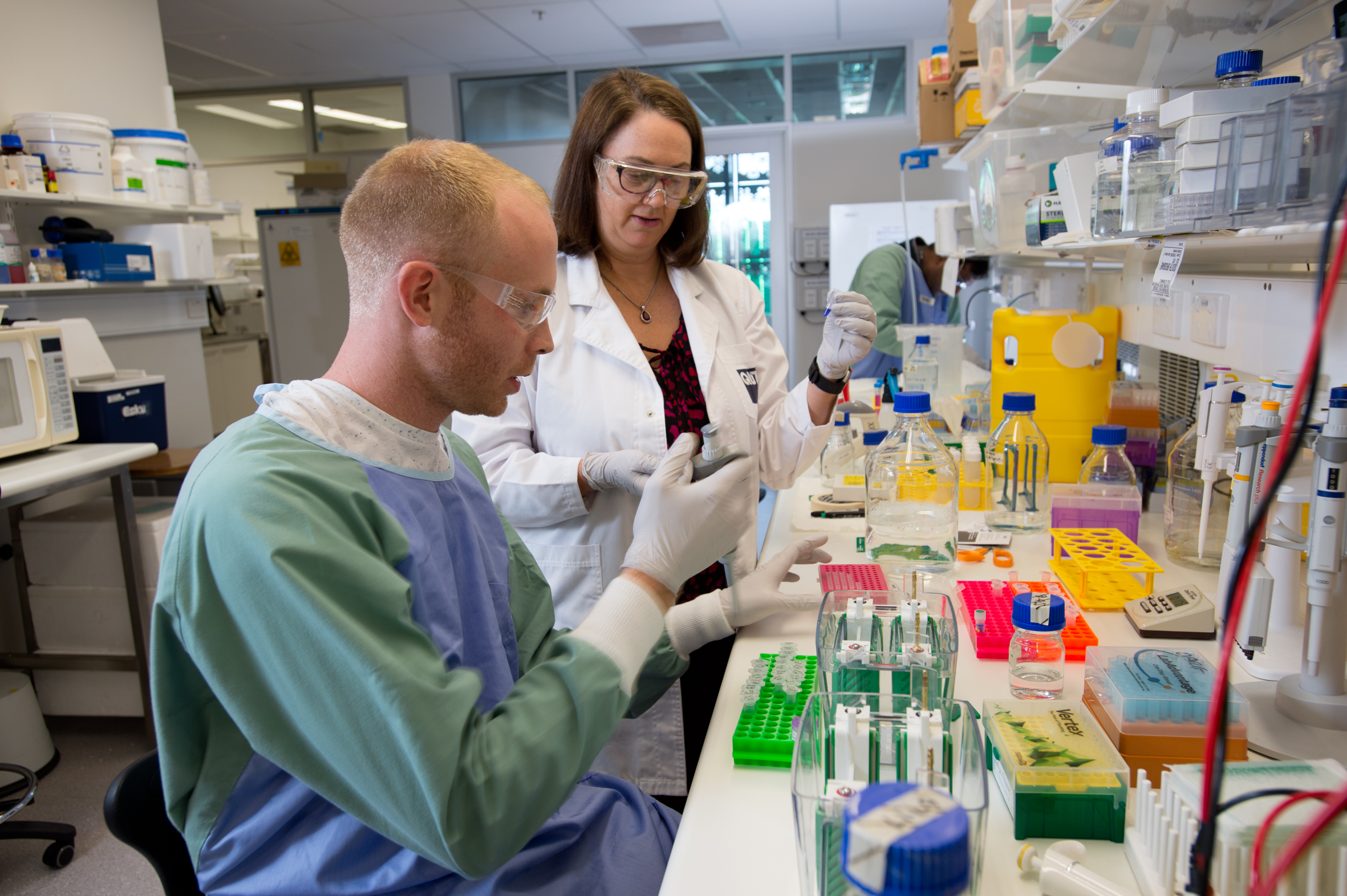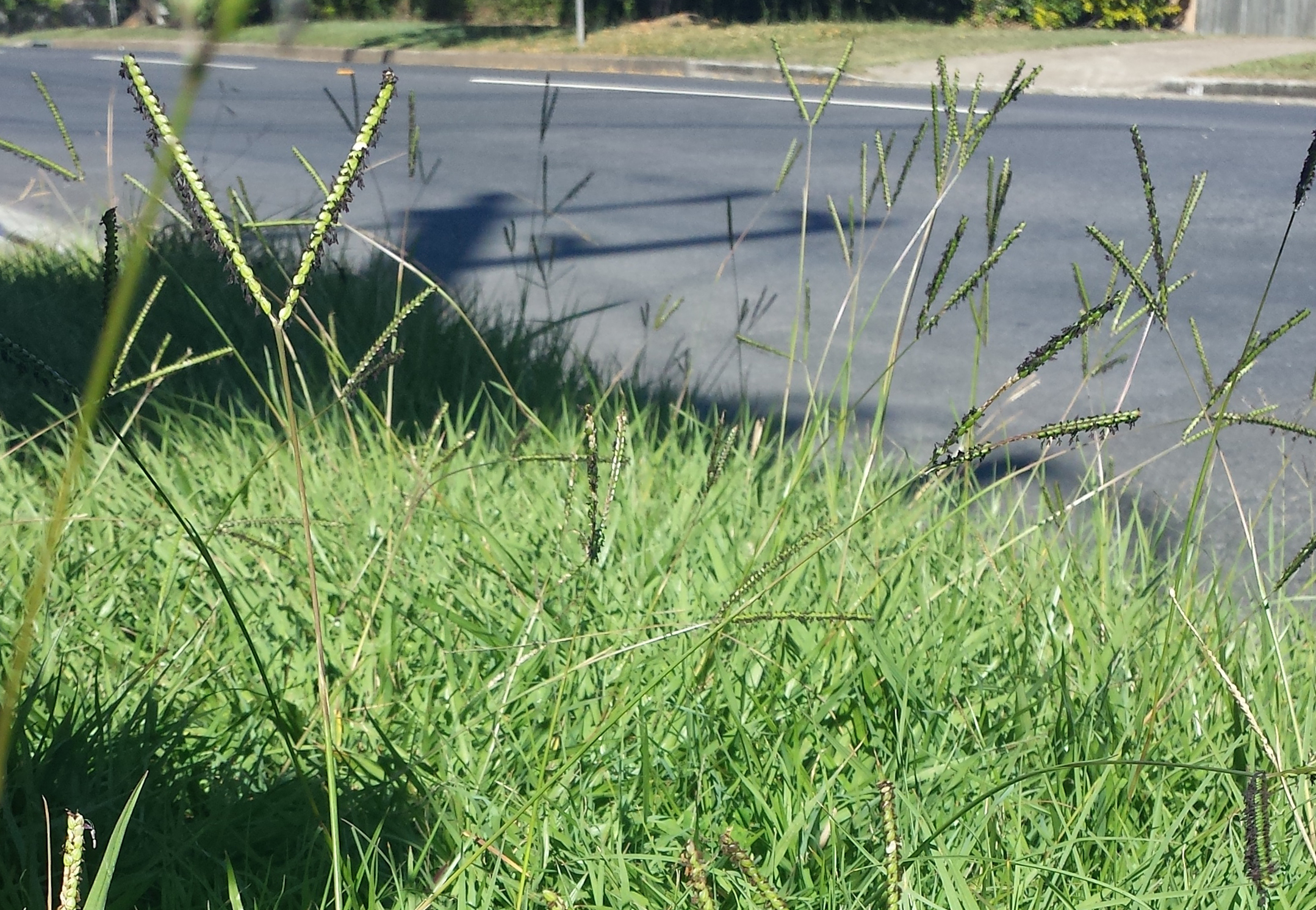
QUT and Swiss medtech company Abionic SA are collaborating to develop rapid, targeted tests for allergies to subtropical grass pollens – tests that could be administered in a GP office.
Head of Allergy Research, Associate Professor Janet Davies from QUT’s Institute of Health and Biomedical Innovation is leading the project, which is supported with funding from the National Foundation for Medical Research and Innovation.
- Project is to develop allergy tests for two major subtropical grass pollens using allergen components identified and patented by Associate Professor Davies
- Currently available allergy tests have been developed for temperate grasses, but Associate Professor Davies’ team has identified that subtropical grass pollen allergens are different from temperate grass pollen allergens
- Researchers and Switzerland-based Abionic SA will work together to develop a grass pollen allergy test panel on the Abionic platform abioSCOPE
- abioSCOPE performs rapid immunoassay tests with blood taken from a finger prick, with results for a panel of tests available in 15 minutes
Associate Professor Davies said she was excited to work with Abionic SA and its innovative diagnostic technology, which can quickly and specifically measure levels of sensitivity to allergens in a doctor’s rooms.
“We will be using subtropical grass allergen components that my team has developed, and undertaking pre-commercial research by testing their transfer to this new, point-of-care test platform that could revolutionise allergy diagnosis for grass pollens,” she said.
“The test will use blood from a finger prick in the doctor’s rooms, and then have the results within 15 minutes, rather than drawing a vial of blood, having that sent to a laboratory for testing and the results coming back at a follow-up visit.
“Also, most currently available standardised allergy blood tests are based on temperate-type grass pollens. Our research indicated that temperate and subtropical grass pollen allergens are different from each other, so available tests are not optimised for relevant allergens of the subtropical region grasses of Australia, Asia, Africa and the US.

Associate Professor Davies said rapid diagnostic tools to identify people at risk of hayfever and allergic asthma induced by the pollens of flowering subtropical grasses, such as Bahia and Bermuda grasses, would improve patient management.

“About 15 per cent of the Australian population suffers from allergic diseases and grass pollen is the major outdoor allergen,” she said.
“People are now more aware of the devastating impact an allergy to grass pollen can have after the thunderstorm asthma event in Melbourne in 2016. More than 10,000 people were affected and 10 people died. Whilst almost all of those affected had hayfever, about 40 per cent of patients had never previously experienced asthma.
“In these events grass pollen grains are swept up into the clouds as the storm forms. It is thought that they absorb moisture then split open into large amounts of smaller allergen particles which can be breathed in more deeply, causing inflammation in the lower airway.
“If you can identify very quickly and easily not only that people are allergic to grass pollens, but which types of grass pollen, then this allows allergy specialists to manage those people and consider available treatments to switch off their pollen allergy and minimise their future risk of being affected by thunderstorm asthma.”
QUT Media contacts: Karen Milliner, 07 3138 1841 or k.milliner@qut.edu.au
After hours: Rose Trapnell, 0407 585 901 or media@qut.edu.au


